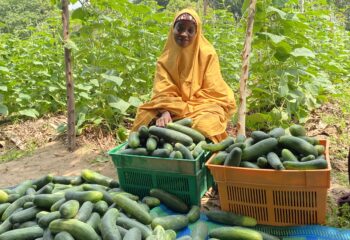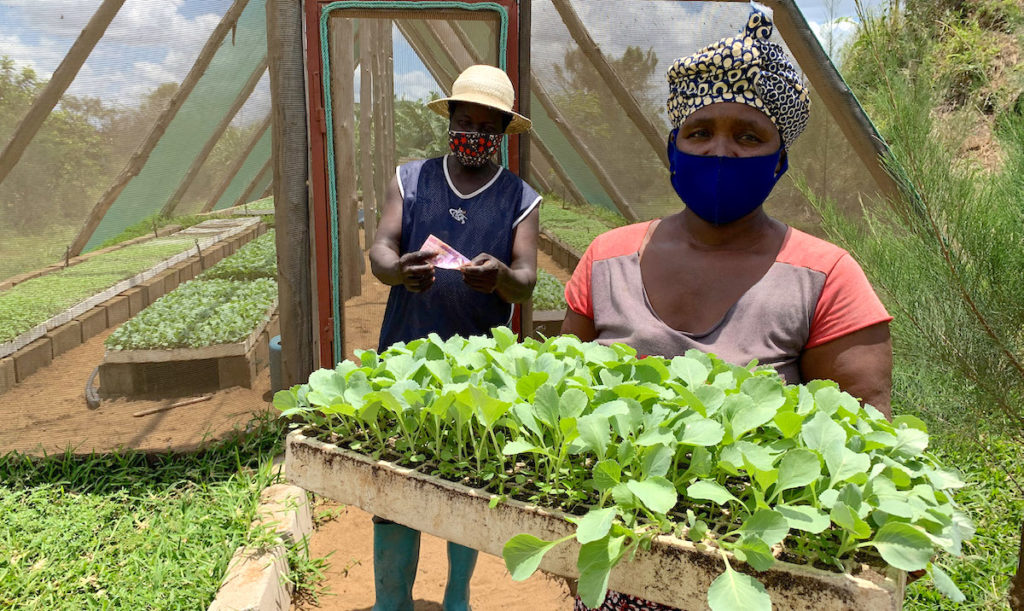
On World Food Day, IFDC is highlighting the role of African farmers in food security. Read our other highlights here.
The central region of Mozambique has experienced a decline in agricultural production in recent years. Drought, flooding, and strong winds from cyclones have affected many areas, rendering farmers and local market actors more vulnerable to poverty and food crisis. The Transfer Efficient Agricultural Technology through Market Systems (TEAMS) program is working toward improvement in crop production that will guarantee food security and sustainable incomes.
Agriculture is the backbone of Mozambique’s economy, accounting for more than a quarter of the gross domestic product and employing 80% of the labor force. Most farmers in the country are subsistence farmers. However, climate shocks and natural disasters, such as floods, droughts, and cyclones, are exacerbating chronic food insecurity for the population.
Mozambique has enormous potential to become a major food producer in Southern Africa. Only 16% of the arable land in the country is currently cultivated, and its geographical location between landlocked countries and ocean ports increases its potential to contribute to regional food security and international markets. Improving agricultural productivity and ensuring access to food are now top priorities for the government.
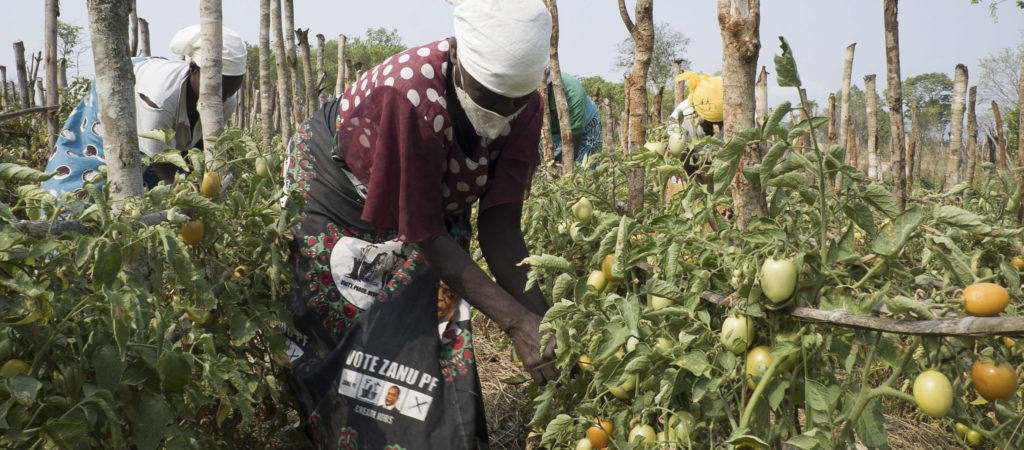
The TEAMS program aims to increase food availability and access for 15,500 farmers in Mozambique, with a focus on women’s economic empowerment through agriculture. The program is facilitating the development of market systems by supporting farmers, agro-dealers, and input suppliers in establishing a continuous supply network of input and output products and helping farmers increase their resilience, productivity, and production using climate-smart agriculture (CSA).
TEAMS has played a key role in increasing resilience and improving productivity for many households. Smallholder farmers have been trained on effective agronomic practices that guarantee production beyond their families’ needs, thus ensuring both food availability and income for the households. Under the TEAMS program, farmers have been introduced to CSA practices that help them overcome the negative impacts of climate change. Climate-tolerant cereals, legumes, and vegetable varieties have reduced the incidences of crop loss. TEAMS has also helped ensure intensification of vegetable production and adoption of environmentally friendly irrigation practices and has provided training on proper management and storage to decrease post-harvest losses.
Buzi is one of the areas in central Mozambique that has been highly affected by climate change, with repercussions for many farmers in the region. Yet, Ana Mapossa, a local rice producer, noted, “The CSA practices taught under the TEAMS program helped me get higher yields when many farmers lost their crops to Cyclone Eloise in 2020. Introduction to flood-resistant and high-yielding Macassane and Simão rice varieties was a game changer.”
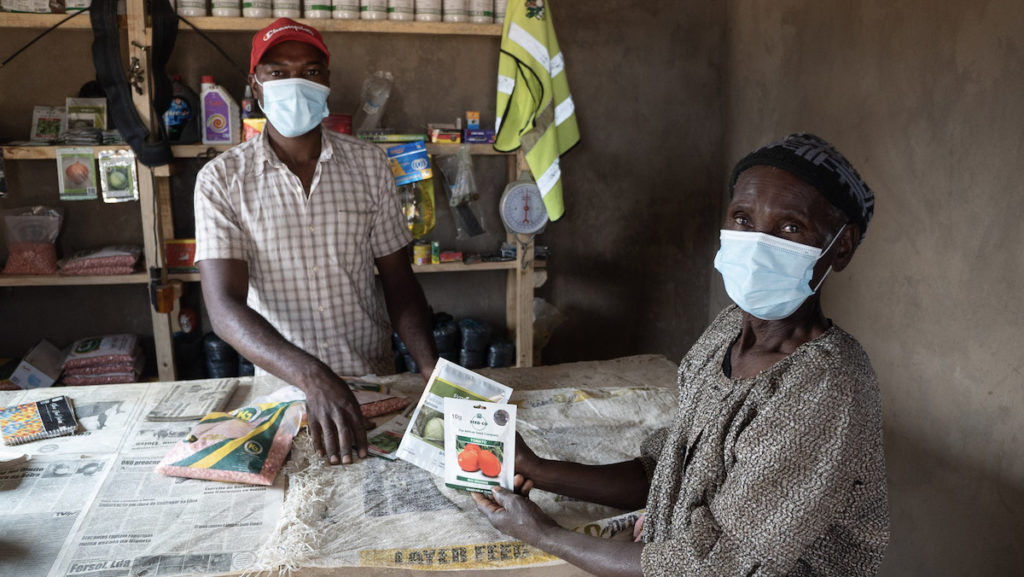
To guarantee sustainable investment in the food and agricultural value chain, TEAMS has helped establish input networks at the community level. The farmers have been linked to local dealers and encouraged to use improved inputs to satisfy their requirements. Linkages to large input companies have been initiated between the hub and local agro-dealers through simple contracts for input supply. “I buy certified seeds from Mbeu, a local agro-dealer introduced to me by IFDC. He advises me on the best agricultural practices that can help improve my farm’s production,” said Jossias, a farmer participating in the TEAMS program.
Following the “leave no one behind” principle, TEAMS has been assisting vulnerable social groups, such as women and ex-guerrillas, to achieve food security, increase resilience to climate shocks, and actively participate in improving the lives of their households as well as the community in general. The program is being implemented in districts where some farmers are former RENAMO combatants who have benefited from the Disarmament, Demobilization, and Reintegration (DDR) process.
Agriculture is the most reliable sector for reintegrating these demobilized soldiers into stable civilian life; 50% of those awaiting demobilization prefer small-scale agricultural activities. The TEAMS program, in collaboration with the Peace Process Secretariat (PPS), has assisted 590 people, 62 of whom were women, in their social reintegration through agricultural activities. Demobilized combatants, whether single or married, must find a way to earn money not only for their own subsistence but also for their households. Small-scale agriculture, which can employ roughly half of the demobilized population, is an ideal way to ensure food security and also plays a supplementary role in wage labor in the household economy.
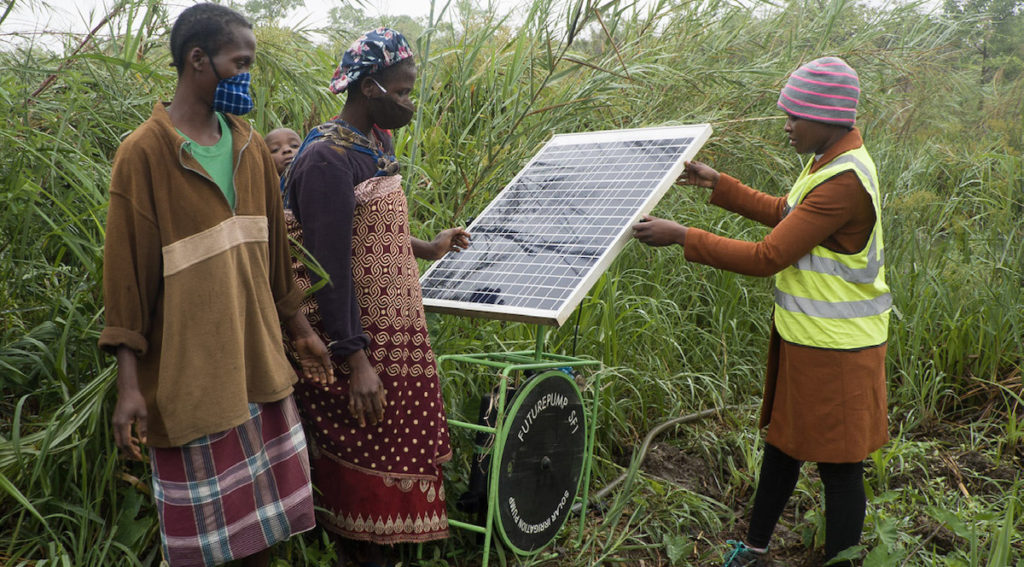
In Mozambique, the capacity of rural women to reduce poverty and increase household food security requires immediate attention. The TEAMS program has placed a great emphasis on women’s roles in this respect. The entrepreneurial and agro-processing technical skills of rural women are being developed in order to support off-farm and off-season income generation in their respective communities, thereby contributing to poverty reduction and improved household food security in a sustainable manner. TEAMS encourages the use of labor- and time-saving post-harvest technologies to reduce women’s effort in threshing cereals and legumes (rice, maize, beans). TEAMS also promotes village savings and loan associations (VSLAs) to improve financial education, particularly for women, and to increase access to finance for investment in farming activities.
Various cooperatives and farmers’ organizations established under the program have been linked to local off-takers of cereals and legumes. Collective commercialization has been achieved by helping farmers develop aggregation centers. Innovative technologies promoted under the TEAMS program are helping farmers overcome food insecurity and other challenges. To help reduce post-harvest losses, especially for highly perishable vegetables, farmers have been introduced to affordable management and storage technologies. Villagers have also been able access to grants with local and hub agro-dealers through their VSLAs. Moreover, circular and green economies have been promoted. Farmers have been trained to reuse crop residues and stubble to make organic fertilizer and animal feeds for domestic use and to sell. This has helped diversify household incomes.
To enable Mozambique to feed itself, environmental issues must be addressed through adoption of good agricultural practices and improvement in the seed system. Climate-smart crop varieties and accessible fertilizer packages will help farmers who struggle with low purchasing power. In addition, resilient markets with policies and mechanisms that allow all actors to quickly recover from external shocks must be established. Farmers must also be educated on improved technologies and be able to easily access extension services and sustainable markets, and through income diversification, households will have multiple sources of revenue.
The TEAMS program (2021-2022) is being implemented by the International Fertilizer Development Center (IFDC) in collaboration with United Purpose, Kwaedza Simukai Manica Association (AKSM), and the African Fertilizer and Agribusiness Partnership (AFAP).



